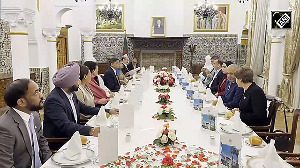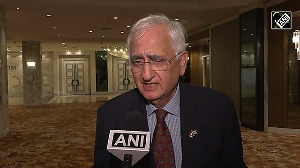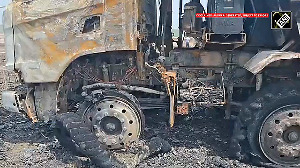Teva of Israel, the world's largest generics company, made a quiet entry into the Indian market some two-and-a-half years ago when it acquired JK Industries' pharmaceuticals business.
In the last one year, the company was reported to be in talks with some leading Indian companies for an acquisition. What added grist to the rumour mills was its appointment of DS Brar, the former Ranbaxy honcho, as its advisor in India.
Business Standard caught up with Aharon Yaari, President and CEO of Teva's API Division while he was in India to inaugurate the R&D centre of Regent Drugs Ltd, a fully owned Teva subsidiary. Excerpts:
In the past one year, there has been speculation about Teva looking out for some big-ticket acquisitions in India?
We are not on an acquisition spree in India, though it's okay to have the buzz. It has created so much interest in us.
Are you open to taking a stake in some bulk drug companies in India?
We don't see an immediate need. We might take positions here and there, but it is not in our schedule to buy particular companies.
What do you think about the valuations of Indian companies?
I think the market gives the valuations and we'll take it. We'll appreciate what the market says. If some many people are willing to buy so many shares at so much price, then that must be the fair valuation.
How frequently do Indian companies approach you for a merger or takeover?
It is not very common. I have not seen a single proposal on my desk in the last year and a half.
Teva started out by acquiring the pharmaceuticals business of JK Industries. And now you have set up this R&D centre. What is your strategy for growth?
We have plans to grow further. As for foraying in other fields, we are more in the exploration stage. Anything new has to be interesting and has to fit in with our global plans.
What is the scope of this R&D centre?
This is focused on process development for active pharmaceutical ingredient (API) and advanced intermediates of API. It will be a part of our global network of 460 scientists. We already have 60 scientists based here in India and will have 70 scientists by the end of the next year.
Any specific therapeutic segments that these scientists will be working on?
The people here are mostly into synthetic chemistry. So it would be a centre of excellence for developing processes.
Is Teva looking to upscale its R&D activity to new chemical entity (NCE), novel drug delivery systems?
For NCEs, we have a different approach. It was based on Israeli innovation in Israeli academic institutes. We have so far had two proven successes. So the pipeline is there. It's an evolutionary process. It's not like we have 10 NCEs. As much as we are number one in generics industry, we are not Pfizer!
Are you looking at research collaborations with Indian academic institutions also?
We
Regent is into API and now this research centre. Would the company also be entering the domestic market?
No. It is an API unit. We are not mixing the businesses. We have a shell company called Teva India and, if at all, that company would enter the Indian market. That would be its job, not Regent Drugs'. But, it is under exploration. The Indian market is very challenging. The way we know how to market drugs in Israel, in US and in many other places, we'll have to learn that in India too. People won't give us 15-20 per cent market share just because we are Teva!
Where does India fit in Teva's global gameplan? What do you perceive as the India advantage that Teva can leverage?
We are doing intensive collaboration in sourcing APIs, collaborations in clinical trials programmes and we are even exploring collaborations in areas like biotechnology. There are some bilateral agreements between Israel and India that would support these projects.
You mentioned about exploring possibilities in biotech in India. What would be your strategy?
Teva has a good knowledge of biotechnology that we got from our acquisition of Sicor. We are looking to be a big force in biotech. That has to be shaped and we are working towards it. The collaborations could be towards generic biotechnology or even NCEs. It will be a product-specific discussion. We'll see what's the best each can offer.
What is the profile of companies you are looking at for collaborations?
The collaborations would be based on technologies and products, not really the profile of the company. It would really depend more on the substance of the deal.
It seems that you are looking at India merely as a low-cost manufacturing base for APIs... Or does the role go beyond?
No. India is very much a part of the Teva global family. We already have more than 300 employees, some of them very well educated, scientists. We believe in wider interaction, that's why our country manager is here.
We are looking at more opportunities to collaborate. India is an important research source and we perceive ourselves as an important player in the industry. We can't and don't want to ignore India. It's not that we have come to conquer India.
We want to grow from a humble player to a reasonably large one. We started with nothing in the name of a portfolio and we now have five molecules or semi-molecules.






